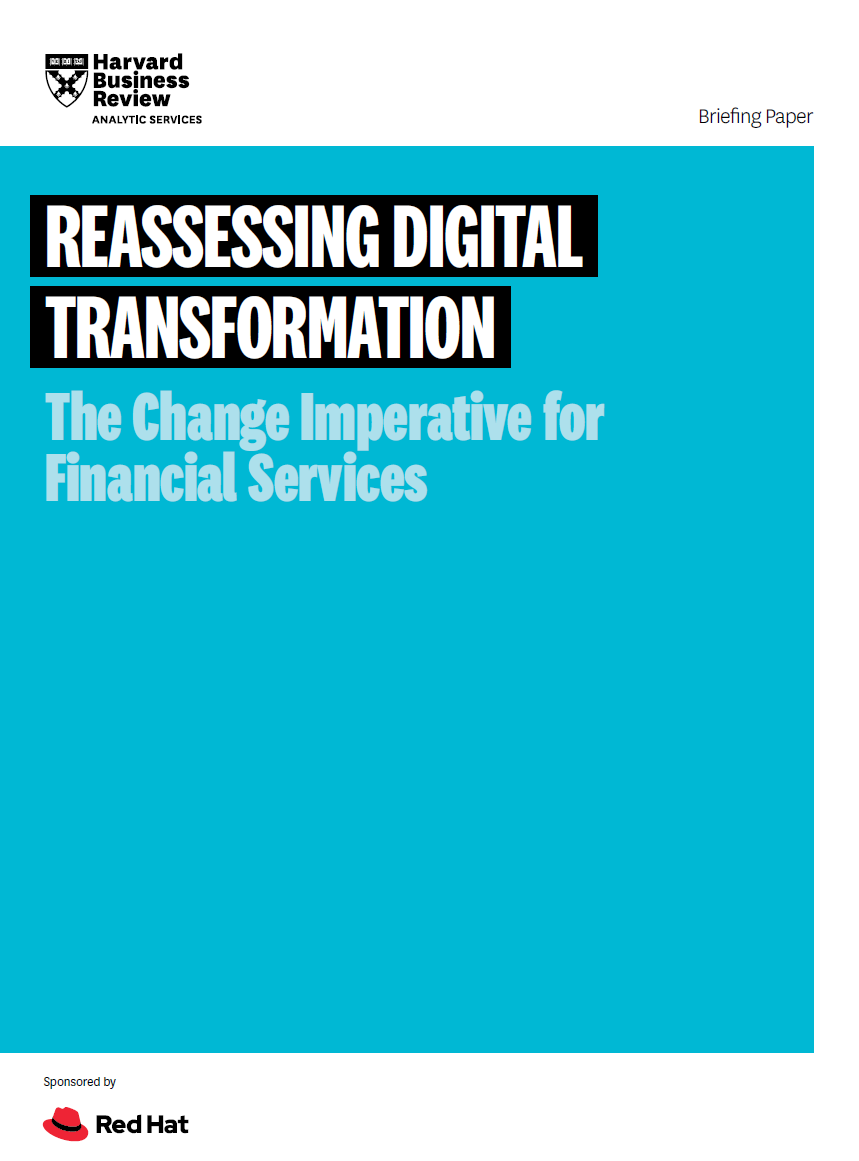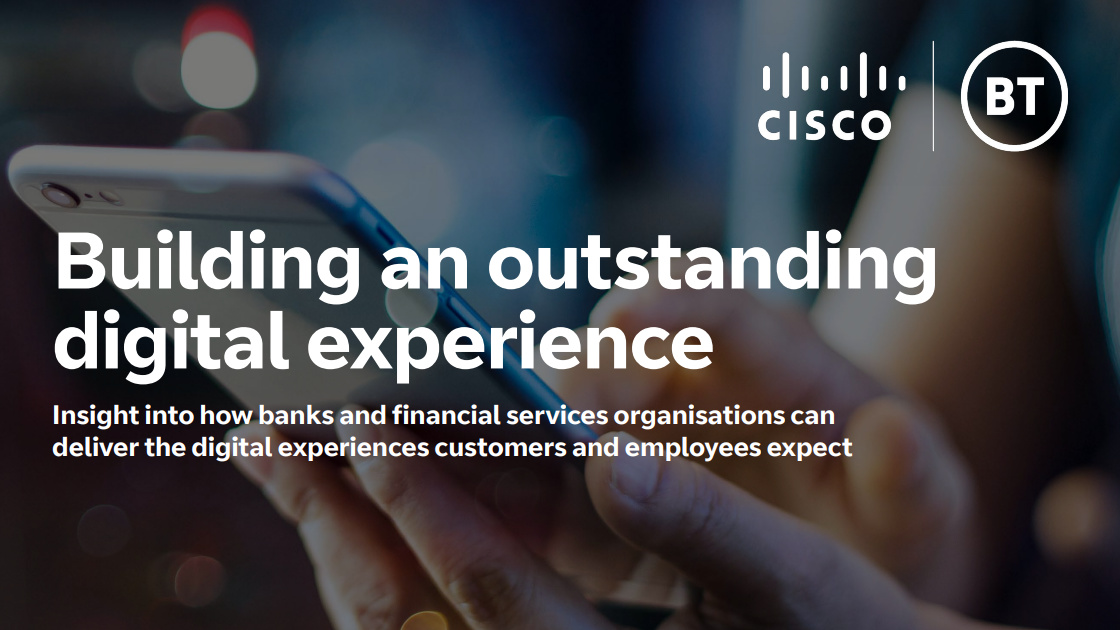The future of business banking now
Open banking and digital innovation mean banking is no longer about queuing at the branch. This is what you and your business need to know about challenger banks


Forget walking down the high street to queue at your bank branch to set up an account, make a deposit or do any other basics of business banking. Thanks to the rise of mobile and online banking, such tasks can be done with a few taps on a smartphone between meetings. But the future of business banking isn’t just digital – it’s about integrated services and linking up with third-party software to make your finances as streamlined as possible.
That’s the idea behind open banking, which is a set of regulations that lets your financial data be shared, opening up the way for new services and apps. Indeed, it’s helped spark the rise of so-called “challenger” banks, which are normally digital only, each with intuitive apps, near-instant account setup and handy features such as instant notifications and automated roundups for saving pots.
The likes of Starling, Monzo, Revolut and N26 are now firmly established in the UK, shaking up the sector by focusing on customer service, low fees and personalisation. They're particularly popular with millennials; a recent survey of 2,000 UK consumers, commissioned by digital banking hub CREALOGIX, found that 1 in 4 under 37s are using digital-only challenger banks, while 14% of UK bank customers spanning all ages have at least one mobile-only digital banking provider. Moreover, up to a third of under 37s said that they have at least two accounts with challenger banks.
But as compelling as they are, these banks started their push into the world of finance via consumer accounts for individuals, leaving small businesses behind.
That’s no longer the case. Starling has signed 155,000 businesses (and has surpassed 1.4 million consumer users), Tide passed the 100,000 mark last summer and Monzo’s business accounts arrived in March 2020. This, Starling has raised £100 million in funding to boost growth and reportedly holds £2.4 billion in its deposit base. “This additional funding from our existing investors demonstrates their commitment both to Starling and to our small business and personal customers who need our support now more than ever,” said Anne Boden, founder and chief executive of Starling Bank.
Traditional banks have also caught on and don’t want to lose their lucrative business clients to newcomers, unveiling their own take on the challenger bank idea with the like of Bó from RBS – think big brewers releasing their take on a craft beer. Whichever you choose, it means same-day account setup, easy-to-use apps, and integrated accounting and other software tools.
SMBs long ignored
It’s high time banks paid better attention to SMBs. According to analyst firm EY, SMBs account for £1.9 trillion in turnover annually and make up 99% of private companies in the UK. But a survey from Adaptive Lab suggested SMBs feel undervalued by larger banks, with too high costs for not enough specialised services. No wonder then that British startup Starling decided early on to target SMBs. “We recognised it was an underserved segment of the market, where the incumbent banks dominate and where there hadn’t been much innovation,” says Alex Frean, head of corporate affairs at Starling. “We thought there was a real customer need out there.”
Get the ITPro daily newsletter
Sign up today and you will receive a free copy of our Future Focus 2025 report - the leading guidance on AI, cybersecurity and other IT challenges as per 700+ senior executives
Oliver Prill, CEO of business challenger bank Tide, adds that his fintech startup started because the co-founders had previously gone through the difficulty of setting up a business bank account themselves. “It didn’t work smoothly,” he says. “The biggest motivation for switchers at the moment is the huge annoyance they have had with the big five banks… they’ve really had it with their bank.”
Why have incumbent banks failed to offer such services? “We come from a history of monolithic universal banks, where small business is one segment among many others without much mindset to look at it any differently,” Prill says. “We fundamentally believe that these are very different industries,” he continues, suggesting that one bank may not be able to serve consumers, corporations, sole traders and SMBs very well, let alone those operating across different industries.
All this means that business banking is ripe for disruption – and the disruptors are at the gate. They’re helped by the rise of digital in SMBs and API-led fintechs, open banking regulations prising data out of incumbents, and also the Alternative Remedies Package, which means there’s money sloshing around to help boost fintech startups. And, so far at least, it appears to be working.
Making the move
That said, despite the increasing options, a June 2019 survey from Accenture suggests a mere 15% of SMB customers intend to switch their bank in the next year, with only 25% saying they would be willing to move to a digital-only service.
There are two types of customer that challenger banks need to convince: those starting new businesses and those switching from an existing company to a different financial provider. For Tide, about 70% of its customers are new-to-market, and 30% are switching. To win over the first tranche, challenger banks need better awareness, admits Prill. He says Tide opens 12% of all new business current accounts, but its own in-house research suggests there’s only brand awareness among 17% of new companies – that’s why Tide ads are plastered all over London at the moment. “For the new-to market, a bank has to be fast… and have a good reputation,” he says.
“But you need to be aware of the bank in the first place.” Frean agrees, noting that the lack of high street banks means creating awareness is a challenge. “We have to go and find customers and make them aware of us,” she says.
RELATED RESOURCE

And then there are switchers, those annoyed at their current banks. It’s not easy to switch, but open banking is making it easier. For consumers, trying out Monzo or Starling is easy: sign up for an account, order a card, install the app, and you can see if it’s a system you like without having your salary paid in or transferring over all your direct debits. It’s more difficult for businesses to try out a new bank fully, as switching everything over takes time and, therefore, money; you would have to be sure of a new service before taking the plunge.
To help, Tide wants to set up a system for trial switching, in which all your figures, transactions and so on are pulled into the Tide account as a data feed, with your existing account staying the same. That lets companies try a bank effortlessly without much risk. “The trial switching overcomes friction, but you need to have a real reason to switch,” Prill says.
Worth the switch?
Alongside attractive apps with whizzy features, challenger banks are trying to convince SMBs to make the switch by helping with or even taking over admin such as payroll and accounting, either offering such services or software themselves or via a third-party provider. “It’s really around saving small businesses time,” explains Prill. “We look at the space not as business banking, but as everything a business owner would consider admin and finance.” Indeed, Tide sees itself not as a bank, but instead as a platform, letting others build products that SMBs can embed into their banking processes. “We want to be the operating system for an SMB, but not the application layer,” Prill says.
And that’s where open banking and third-party partnerships come in. Rather than export transactions and then import them into your software of choice, tools such as Xero and FreeAgent are integrated into the app. When the right tool isn’t available, Tide builds one; so far, it’s created built-in systems for invoices as well as credit. Take invoicing, for example: an SMB needs to create, send and chase that invoice, noting when it’s paid and pushing the relevant information into an accounting system. “Across these different product sets – invoicing, credit, payments, accounting – is a connectivity chain that we orchestrate, we make it highly usable,” says Prill.
Starling’s equivalent is the Marketplace. This is the epitome of the open banking idea, a digital library of services and tools that Starling customers can easily integrate with their account, from receipt tracking to lines of credit, as well as leading accountancy software Xero and FreeAgent. “They can immediately pull your files from your Starling account and populate your accountancy files,” Frean says. “We’re adding to the Marketplace all the time.” Of course, some of the key features aren’t high-tech. Starling and Tide offer cash deposits via the Post Office, with Frean noting that it’s one of Starling’s most popular features.
What’s next?
Prill predicts the banking market will fragment even further, particularly for businesses. Rather than choose the best of few options from five or so big banks, we’re already seeing more competition from the likes of Tide, Starling and the rest. “In the long term, there will be many different models to suit different customer needs,” he says. “We think this is a sign of a healthy market, that there is not a monolithic culture but offering true choice."
Such banks will become less about your finances, and more about all aspects of your company – that’s Tide’s idea with the “OS for SMBs” concept. Right now, invoices and accounting are built into challenger business accounts, but within the next several months, Tide plans to also offer company formations. “The data we collect to set you up with a bank account… we might as well set up the company for you,” Prill says. “We could register your domain and website for you too.
“I think we’ll continue to see traditional banking providers lose share,” Prill adds, promising more richness of services, as well as more variety – and that’s where artificial intelligence (AI) could come in, he suggests, with machine learning used to find and suggest the best services for your business from a multitude. So many features and services that small-to-medium sized businesses need help choosing between them? That’s a nice change from which of the five boring banks will stash your money.
Freelance journalist Nicole Kobie first started writing for ITPro in 2007, with bylines in New Scientist, Wired, PC Pro and many more.
Nicole the author of a book about the history of technology, The Long History of the Future.
-
 Bigger salaries, more burnout: Is the CISO role in crisis?
Bigger salaries, more burnout: Is the CISO role in crisis?In-depth CISOs are more stressed than ever before – but why is this and what can be done?
By Kate O'Flaherty Published
-
 Cheap cyber crime kits can be bought on the dark web for less than $25
Cheap cyber crime kits can be bought on the dark web for less than $25News Research from NordVPN shows phishing kits are now widely available on the dark web and via messaging apps like Telegram, and are often selling for less than $25.
By Emma Woollacott Published
-
 Unlock the potential of LATAM’s booming crypto market
Unlock the potential of LATAM’s booming crypto marketwhitepaper Strategic pathways for crypto companies looking to expand into Latin America
By ITPro Published
-
 The customer knows best: How to ensure you’re delivering an effective digital payments experience
The customer knows best: How to ensure you’re delivering an effective digital payments experienceSponsored Tap into shifting customer trends with account information services that will give your business a competitive edge
By ITPro Published
-
 How AI is accelerating digital transformation in the banking industry
How AI is accelerating digital transformation in the banking industrySupported Content Gen AI, fraud detection, and chatbots are all transforming the financial industry, but the cloud is the foundation for it all
By Bobby Hellard Published
-
 What open banking means for the future of online transactions
What open banking means for the future of online transactionsOpen banking offers a faster, more automated future for transactions – but it has a rigid legal road to traverse
By ITPro Published
-
 Embracing the future of financial services
Embracing the future of financial servicesWhitepaper Embedded Finance is leading the way. Discover how merchants could stand to gain the most.
By ITPro Published
-
 The online cash revolution
The online cash revolutionwhitepaper Why adding eCash to the checkout unlocks more growth
By ITPro Published
-
 Building an outstanding digital experience
Building an outstanding digital experiencewhitepaper Insight into how banks and financial services organizations can deliver the digital experiences customers and employees expect
By ITPro Published
-
 How payments support the growth of software platforms
How payments support the growth of software platformswhitepaper Discover how Paysafe can help drive the growth and success of your software platform
By ITPro Published